Head Shake - Sons of Thunder
A tribute to T.E. Lawrence's The Road
The extravagance in which my surplus emotion expressed itself lay on the road. So long as roads were tarred blue and straight; not hedged; and empty and dry, so long I was rich. – T. E. Lawrence, The Road
The pre-dawn air is thick so close to the bay, humidity just holds to the shores, the drone of a workboat in the distance sounds the start of another work day on the water. He’s heading north packed with a pair of turbo-diesels running well. I touch the old Yami’s tank in the dark to see if we had an overnight dew. Few things sound so good in the morning as internal combustion invisible and pinned. I suspect T. E. Lawrence would have understood that.
Thomas Edward Lawrence CB DSO FAS, or Lawrence of Arabia as he came to be known, was born the illegitimate son of an Anglo-Irish nobleman and a Scottish governess. His list of accomplishments was varied and lengthy: Oxford scholar, archaeologist, polyglot, writer, and decorated soldier. He came by his knowledge of the ground he’d later lead Arab irregulars over through his academic pursuits – he had studied the past and the cultures, he spoke the languages of the region, and he played a part in shaping the future we still see evident today.
Lawrence sought to escape the fame that followed him after WWI by enlisting in the RAF under a pseudonym. It was during that time he wrote a book titled, “The Mint,” with instructions for it to only be published after his death. Within that book there is an essay (Part III, chapter 16) titled, The Road, and it is that story that I would like to call your attention to. Lawrence, ever the linguist, speaks to us present day with his passionate love of riding as evidenced in his writings and in his observations that we all share to some degree.
Boanerges’ first glad roar at being alive again nightly jarred the huts of Cadet College into life. ‘There he goes, the noisy bugger,’ someone would say enviously in every flight. It is part of an airman’s profession to be knowing with engines: and a thoroughbred engine is our undying satisfaction. The camp wore the virtue of my Brough like a flower in its cap. – T. E. Lawrence
I’d wager the Honda RC51 sitting in my driveway presently would capture his attention for the obvious reasons – he loved his performance V-Twins – but I suspect the old Yamaha SR500 I have been working on might also capture his heart despite its relatively pedestrian pedigree; in its simplicity he would recognize the motorbikes of his day. And capture his heart it would, because T. E. Lawrence was, if nothing else, a romantic. One cursory read of The Road makes that apparent.
A skittish motor-bike with a touch of blood in it is better than all the riding animals on earth, because of its logical extension of our faculties, and the hint, the provocation, to excess conferred by its honeyed untiring smoothness. Because Boa loves me, he gives me five more miles of speed than a stranger would get from him. – T. E. Lawrence
He named his first motorcycle, “Boanerges,” an Aramaic term reportedly given to the apostles John and James as a surname by Jesus Christ, as recorded in the Book of Mark 3:17. Given Lawrence’s scholarly pursuits and background in the region, the name should come as no surprise. Properly translated it means: Sons of Thunder.
Once we so fled across the evening light, with the yellow sun on my left, when a huge shadow roared just overhead. A Bristol Fighter, from Whitewash Villas, our neighbour aerodrome, was banking sharply round. I checked speed an instant to wave: and the slip-stream of my impetus snapped my arm and elbow astern, like a raised flail. The pilot pointed down the road towards Lincoln. I sat hard in the saddle, folded back my ears and went away after him, like a dog after a hare. Quickly we drew abreast, as the impulse of his dive to my level exhausted itself. – T. E. Lawrence
Sons of Thunder indeed. In The Road Lawrence depicts a world we all know, but he transforms a world of riding into a thundering place of beauty and juxtaposition, an ephemeral state that I can only describe as moto-grace. It’s as though through the mere act of twisting the throttle the world becomes more immediate, more visceral, more meaningful and magical. He could produce a transitory world of exaltation briefly and do so in the pursuit of his groceries, for The Road is ultimately a tale about grocery shopping – glorious, throttle-to-the-stop, grocery shopping. Never was grocery shopping so inexorably linked to single-track salvation.
I had not done much thundering lately, and I have raced the approaching winter season to complete work on my old Yamaha Single – to beat the leaves changing – swearing another autumn would not pass without the SR properly modified and thumping through our backwoods before winter.
Poor Lawrence’s days of thundering had come crashing quite literally to a halt 81 years earlier while piloting what was his seventh Brough Superior. He sought to avoid a collision with two boys on bicycles on one of the country lanes surrounding his aerodrome. He avoided the boys, but he couldn’t avoid his fate. He died as the result of severe head injuries some days later at the age of 46. I think he would have recognized his motorways in our sylvan switchbacks and farm roads. I’d like to think the basso profondo exhaust note of my modified Single pounding out its song through the woods would have reminded him of his Twins at full bark.
The bad ground was passed and on the new road our flight became birdlike. My head was blown out with air so that my ears had failed and we seemed to whirl soundlessly between the sun-gilt stubble fields. I dared, on a rise, to slow imperceptibly and glance sideways into the sky. There the Bif was, two hundred yards and more back. Play with the fellow? Why not? I slowed to ninety: signalled with my hand for him to overtake. Slowed ten more: sat up. Over he rattled. His passenger, a helmeted and goggled grin, hung out of the cock-pit to pass me the ‘Up yer’ Raf randy greeting.
They were hoping I was a flash in the pan, giving them best. Open went my throttle again. Boa crept level, fifty feet below: held them: sailed ahead into the clean and lonely country. An approaching car pulled nearly into its ditch at the sight of our race. The Bif was zooming among the trees and telegraph poles, with my scurrying spot only eighty yards ahead. I gained though, gained steadily: was perhaps five miles an hour the faster. Down went my left hand to give the engine two extra dollops of oil, for fear that something was running hot: but an overhead Jap twin, super-tuned like this one, would carry on to the moon and back, unfaltering. – T. E. Lawrence
T. E. Lawrence was the Son of Thunder, with the almost religious zeal in which he pursued his passions, some of which were so improbably successful and inconsolably futile as to make him a legend. He thundered through life. It wasn’t enough to help shape and lead a nascent Arab revolt to, much to his later chagrin, advance the interests of empire; the war had concluded but he had not. He still chased that storm, or maybe it chased him, reenlisting as he did in the RAF under a pseudonym having long since fulfilled any duty to country or kinfolk. He was a soldier, a scholar, and an unbridled spirit; he lived and died that way. What was remarkable about him isn’t what gives rise to the questions of, “How did he do that,” concerning his Middle East exploits, it becomes clear upon examination of his life that the question naturally should be, “How could he not?” It was who he was.
I let in the clutch again, and eased Boanerges down the hill along the tram-lines through the dirty streets and up-hill to the aloof cathedral, where it stood in frigid perfection above the cowering close. No message of mercy in Lincoln. Our God is a jealous God: and man’s very best offering will fall disdainfully short of worthiness, in the sight of Saint Hugh and his angels.
Remigius, earthy old Remigius, looks with more charity on and Boanerges. I stabled the steel magnificence of strength and speed at his west door and went in: to find the organist practicing something slow and rhythmical, like a multiplication table in notes on the organ. The fretted, unsatisfying and unsatisfied lace-work of choir screen and spandrels drank in the main sound. Its surplus spilled thoughtfully into my ears. – T. E. Lawrence
Cathedrals, saints, sausages, and sinners: This is the world T. E. Lawrence inhabited and rode through at times, throttle to the stop.
At Nottingham I added sausages from my wholesaler to the bacon which I’d bought at Lincoln: bacon so nicely sliced that each rasher meant a penny. The solid pannier-bags behind the saddle took all this and at my next stop a (farm) took also a felt-hammocked box of fifteen eggs. Home by Sleaford, our squalid, purse-proud, local village. Its butcher had six penn’orth of dripping ready for me. For months have I been making my evening round a marketing, twice a week, riding a hundred miles for the joy of it and picking up the best food cheapest, over half the country side. – T. E. Lawrence
And so T. E. Lawrence leaves us with his panniers stuffed with provisions. The contrasts are striking both in his writing – motorcycling making the mundane something memorable – but also in the similarities to today’s rides, and those who chase whatever it is out on those back roads.
Lawrence was legendary, the likes of you and I are not. His Brough Superiors boast a fine pedigree that my humble SR does not, but we have pursued the same things aboard our respective rides, somewhere between sausages and salvation. I can’t help but think that the man who raced fighter-bombers on the back roads of his day in rural England, who sought solace on an honest bike at speed on “roads tarred blue and straight” would have appreciated the simplicity found in the scrappy Yamaha thumper and enjoyed, just as he did back in his day, the ride.
Ride hard, ride safe, cinch that chin strap, and look where you want to go.
To read, The Road, in its entirety, please follow the link: telstudies.org
About the Author: Chris Kallfelz is an orphaned Irish Catholic German Jew from a broken home with distinctly Buddhist tendencies. He hasn’t got the sense God gave seafood. Nice women seem to like him on occasion, for which he is eternally thankful, and he wrecks cars, badly, which is why bikes make sense. He doesn’t wreck bikes, unless they are on a track in closed course competition, and then all bets are off. He can hold a reasonable dinner conversation, eats with his mouth closed, and quotes Blaise Pascal when he’s not trying to high-side something for a five-dollar trophy. He’s been educated everywhere, and can ride bikes, commercial airliners and main battle tank
More by Chris Kallfelz



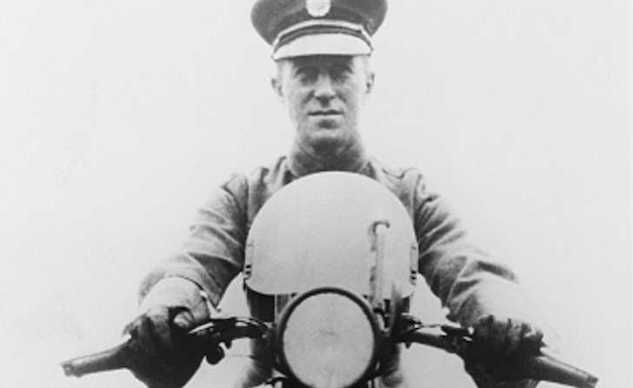
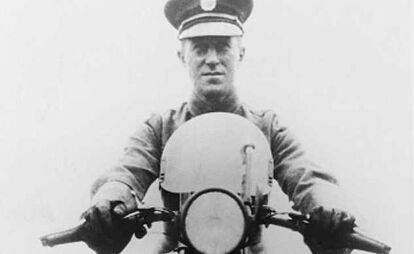











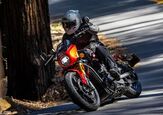
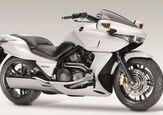
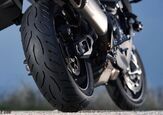
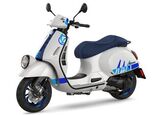
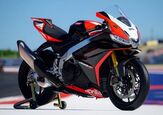
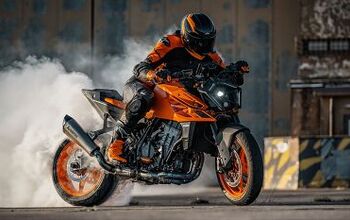
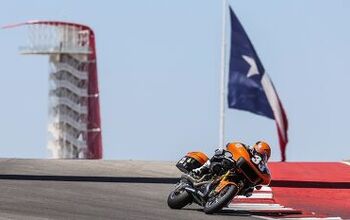
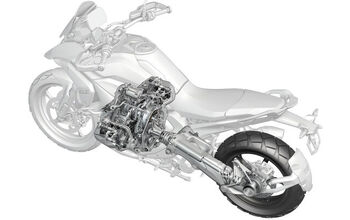
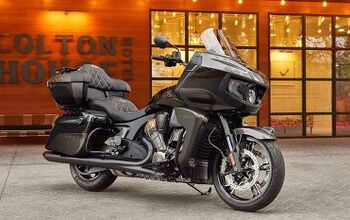

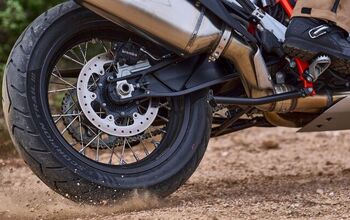
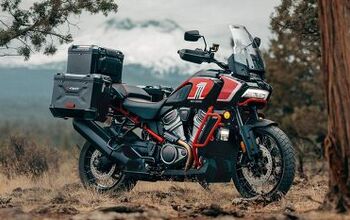
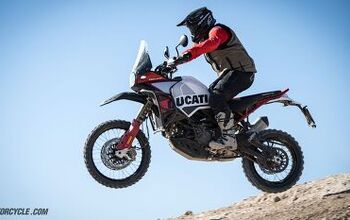
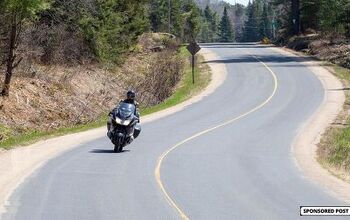
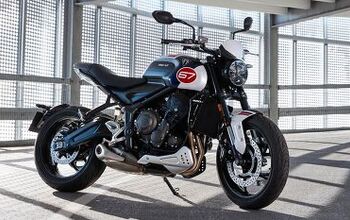
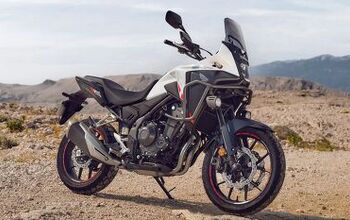
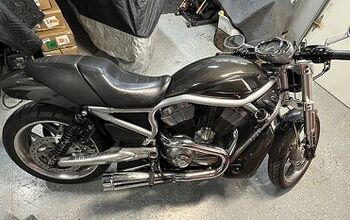
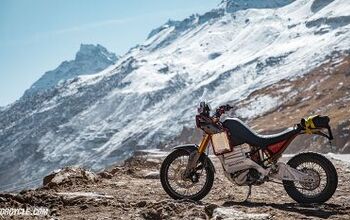
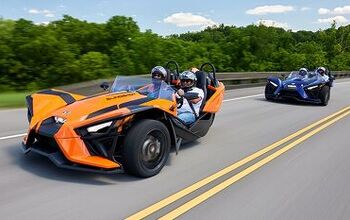
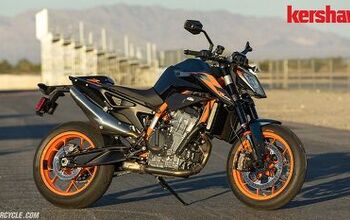
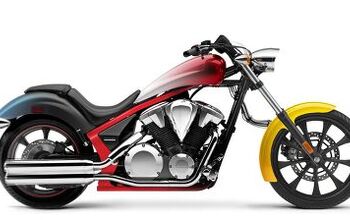
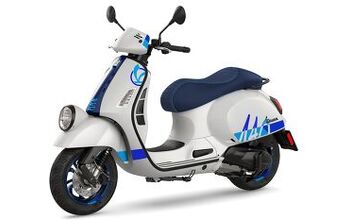

Comments
Join the conversation
Forgive me for taking a tangent. If T.E. was Yin, then perhaps Leonard Cohen was Yang. We just lost one of the greats. RIP
Here's something commemorating the influential role played in WW1 by the enigmatic, bike-loving ‘Lawrence of Arabia’, 100 years ago. > http://thettstore.co.uk/col...